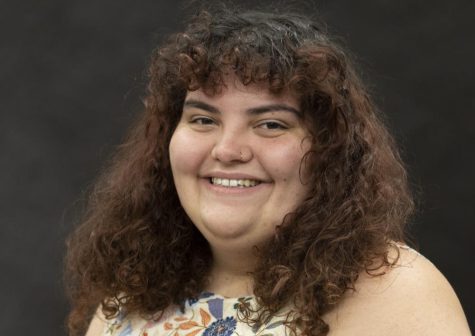CAA approves new options, course
March 28, 2019
The Council on Academic Affairs approved three new options and one new course for non-licensure teaching during its meeting Thursday.
The three new options will focus on early childhood education, elementary education and middle level education. The new course, which is called “Internship in Education Studies,” is an actual internship that focuses on education in a non-classroom setting.
The course will be the alternative class for students who take a non-licensure route.
Jeanne Okrasinski, the department chair for Teaching, Learning, and Foundations, said this course makes the new options possible.
“We were looking to place students in non-classroom settings in order to achieve their bachelor’s degree,” Okrasinski said. “This course would basically be the same thing as teaching but in a non-classroom setting.”
She said the options are for students who go through education courses and realize they do not want to teach in a classroom setting.
Okrasinski said students who major in education with one of the new options will not receive licensure.
“Basically what (these options) does is it removes only the student teaching requirement,” Okrasinski said. “(It is like a licensure major) until you get to the very last requirement which then becomes an internship in education studies instead of student teaching.”
Doug Bower, the dean of the School of Education, said it gives those with the degree the option to work with kids in a different setting than a classroom and is similar to degrees the department has had in the past.
“It is similar to what our previous adult continuing (education) program did,” Bower said.
Bower added that depending on when students decide to take a non-licensure route, they could substitute classes that may be required for someone working toward a licensure.
Okrasinski said when it comes to the internship course, students will be able to work in a variety of places other than classrooms like the Salvation Army or after-school programs.
She said where students work is open to interpretation as long as they are working and are responsible for a group of children and that it should align with their career goals.
“They are going to gain experiences with community or private organizations that they might want to work with upon graduation,” Okrasinski said.
The course will be a full semester internship and it will be possible for students to work together or separately and will have the option to work in the Charleston community or in the area they plan on moving to after graduating.
If students decide later that they would like to receive licensure to work in a different education setting, they would need to come back as a post-baccalaureate and complete the degree with licensure.
There will be an additional cost of $200 for students who take the class to cover travel expenses.
The CAA also discussed applications for the Faculty Laureate.
Applications are due April 5 by 4 p.m. and applicants should turn in all nominations and supporting materials to Kelli Davis in the Vice President for Academic Affairs office.
No items were added to the agenda for the April 4 meeting.
Corryn Brock can be reached at 581-2812 or [email protected].
















































